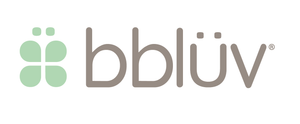
How to Prevent Respiratory Infections
The respiratory infection period is in full swing in our homes. Paper tissue companies see their sales skyrocket and dark circles under parents' eyes seem to deepen.
Having to deploy extraordinary energy to accompany our babies and children when they get sick is the lot of many of us. Putting some of that precious energy in preventive measures is an unknown to the majority of parents.
Prevention equates to taking action!
Classic preventive measures
1) Hand washing
No, we can't reinvent the wheel all the time! Using water and soap to get rid of germs is truly the basis of prevention. Oftentimes, we wash our hands as a reflex during our daily chores, but what about our little ones? They also need to get their hands washed, and with your guidance, they will learn to do it at the right time.
2) Mama bear
Have you been told you're feral when you refuse that a stranger caresses your baby's head at the grocery store? You're allowed and you make sense! After all, you're the one who'll be in charge of caring for him day and night should he catch a virus.
3) Isolation
There's no need for a complicated hospital protocol to make a good call. If you or a family member have symptoms, limit your contacts with others. This should also go with people who want to spend time with your children. Caution, without going to the extremes we went through during the pandemic, can fgreatly restrain the number of infections.
Home improvements
1) Ambiant temperature
Your Igrö thermometer should indicate a room temperature between 20 and 22ºC. If you feel particularly cold or if your mother-in-law complains about hot flashes, it's better to change the way you dress rather than the thermostat.
2) Humidity, an unexpected yet mitigated ally
A good humidity level is essential to healthy airways, and therefore effective when thinking of prevention (and in symptom relief when viruses still find their way to your family!). However, the old humidifier you've had lying around at the back of your closet could contain mold and therefore become detrimental to your family's health. It's important to follow the manufacturer's hygiene measures. Clean the base and all the nooks and crannies, change the water and clean the filter. Many steps are essential in caring for these machines and it's important to be able to do them!
- The Umidö humidifier meets all the criteria in this matter. It's easy to clean, doesn't have a hard-to-access nook that requires a surgeon's skills to clean properly. Its water tank is easy to carry around to change its water daily. Beyon its efficiency at maintaining a good humidity level in a room, it also doubles as an air purifier. It's a practical, beautiful design that also allows the use of essential oils. Personnally, this product from bblüv is a favorite!
3) Out with respiratory irritants!
Some are better known like dust or mold, but others irritants are also often found in our homes. Chemical cleaning agents and room deodorizers, for ex ample, are underestimated irritants. Paying attention to the products used to clean the shower, vacuuming the shedded fur accumulated on the couch, and smoking outside are all small actions that matter.
Caring for ourselves and our family
1) Lifestyle
Remember how sleep is a part of our basic needs? It's often the most neglected with parents of young children. Eat well; no need for anything complicated. Try to have balanced meals that you'll enjoy. The same should go for your kids!
2) Fresh air and leaving the house
Congratulate yourself the next time you go for a walk with your neighbor or take your kids to the park. Breathing some fresh air and being active are good allies to prevent health problems.
3) Nasal hygiene… THE #1 ACTION
As much as its disagreeable for both the child who is subjected to it and the parent who does it, nasal hygiene remains one of the best preventive and support measures when dealing with respiratory infections. It's a very important action that needs to be done properly, otherwise it might as well be abandoned.
- You will find here a short video tutorial to teach you nasal cleaning for children 0 to 5 years old. In it, we're using another favorite from bblüv called Nöze. As the nurse will explain it, it's sometimes necessary to suction out nasal secretions after the baby's nasal cleaning. The manual nasal aspirator will allow you to do it efficiently and its design is easy to clean and carry!
Taking action through prevention demands time and energy. In contrast to taking action when our child is sick, it's often tempting to neglect preventive measures. What matters is implementing one good habit at a time, getting the right tools to make them easier to do in our day-to-day tasks and apply this knowledge and reminding ourselves that it's for the good of the whole family... it's your time to act!

